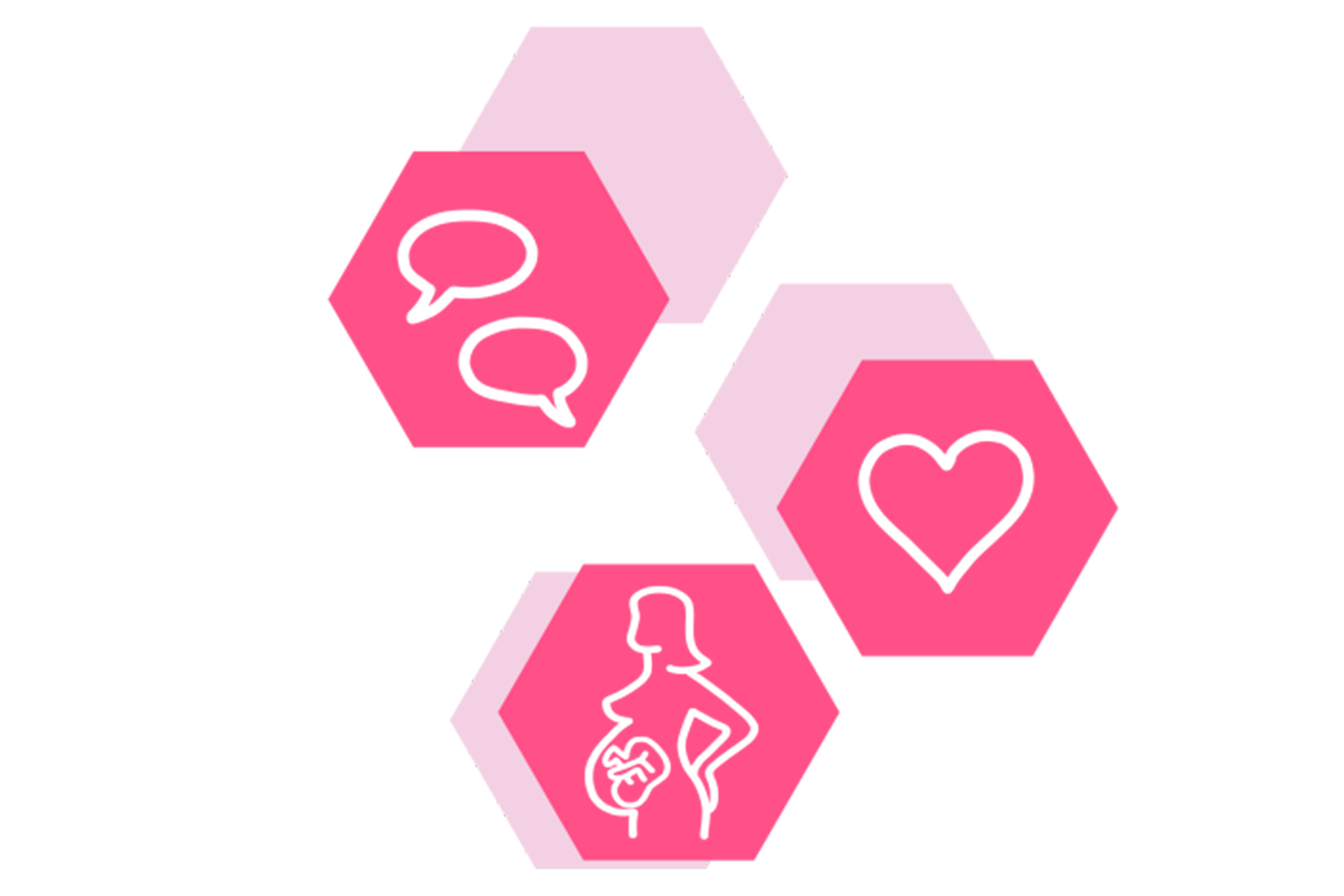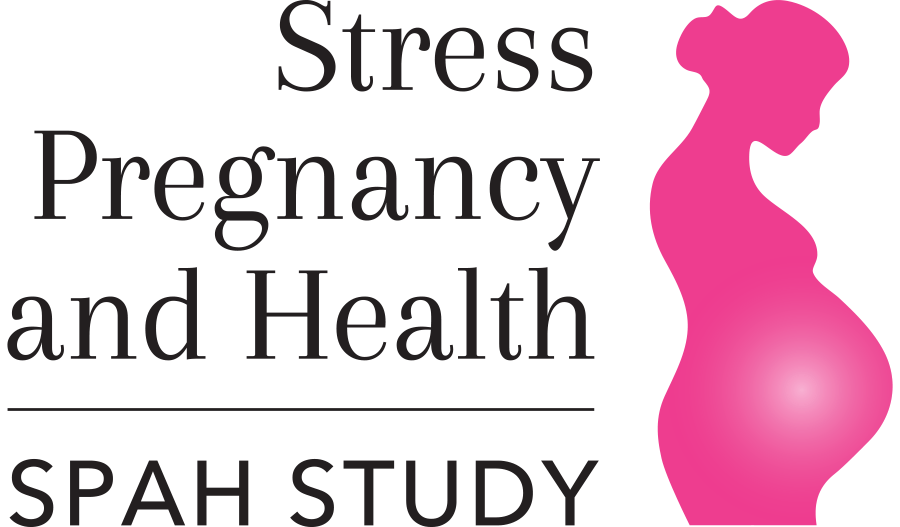Stress Pregnancy and Health Pilot Study Findings
In 2014 and 2015, our research team conducted an initial pilot of this project to test feasibility and develop some initial research questions. By the end of the study, 100 participants completed 2 study visits, provided 2 blood samples during pregnancy, and donated placenta samples after they delivered their babies.
What did the study team find?
In the blood and placentas we measured the levels of hormones and molecules that are modified by stress and are also important to successful pregnancies.
By looking at the survey and biological data in combination, we have so far uncovered three important findings:
1. Household income is related to inflammation in the placenta
2. Parent socioeconomic disadvantage is associated with the types of genes that are expressed in the placenta
3. Social relationships influence biology during pregnancy
How is household income related to inflammation in the placenta?
When a wound swells up or turns red and hurts, it may be a sign of inflammation. Inflammation is one of the body’s responses when a person experiences a physical or stressful threat. The role of inflammation is to help the body fight against something that may be harmful. Stress can cause inflammation throughout the body and sometimes inflammation is found in the placenta. Placental inflammation may interfere with the development of the baby and it may have impacts on the birthing parent and infant’s health.

In the SPAH pilot study, we found that inflammation in the placenta is related to household income. As depicted in the graph, participants who reported lower household income were more likely to have inflammation in the placenta compared to participants with higher income. The SPAH II study aims to better understand how this happens.
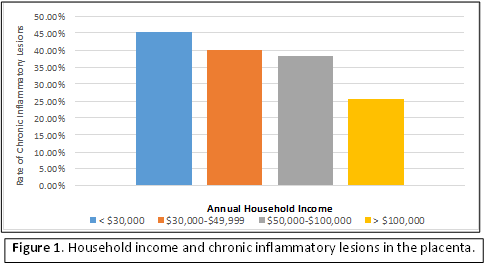
How is parent socioeconomic disadvantage associated with the types of genes that are expressed in the placenta?
Genes encode proteins and proteins dictate the function of cells. Therefore, the thousands of genes expressed in a particular cell determine what that cell can do. Studies have shown that the genes in the placenta may have an impact on the genes of the baby while the baby is growing inside the uterus.
In the SPAH pilot study, we found that birthing parents who reported more economic hardship showed higher expression of genes that are related to inflammation in their placentas. These individuals also showed lower expression of genes that are related to growth and development in their placentas. These findings are shown in the graph below.
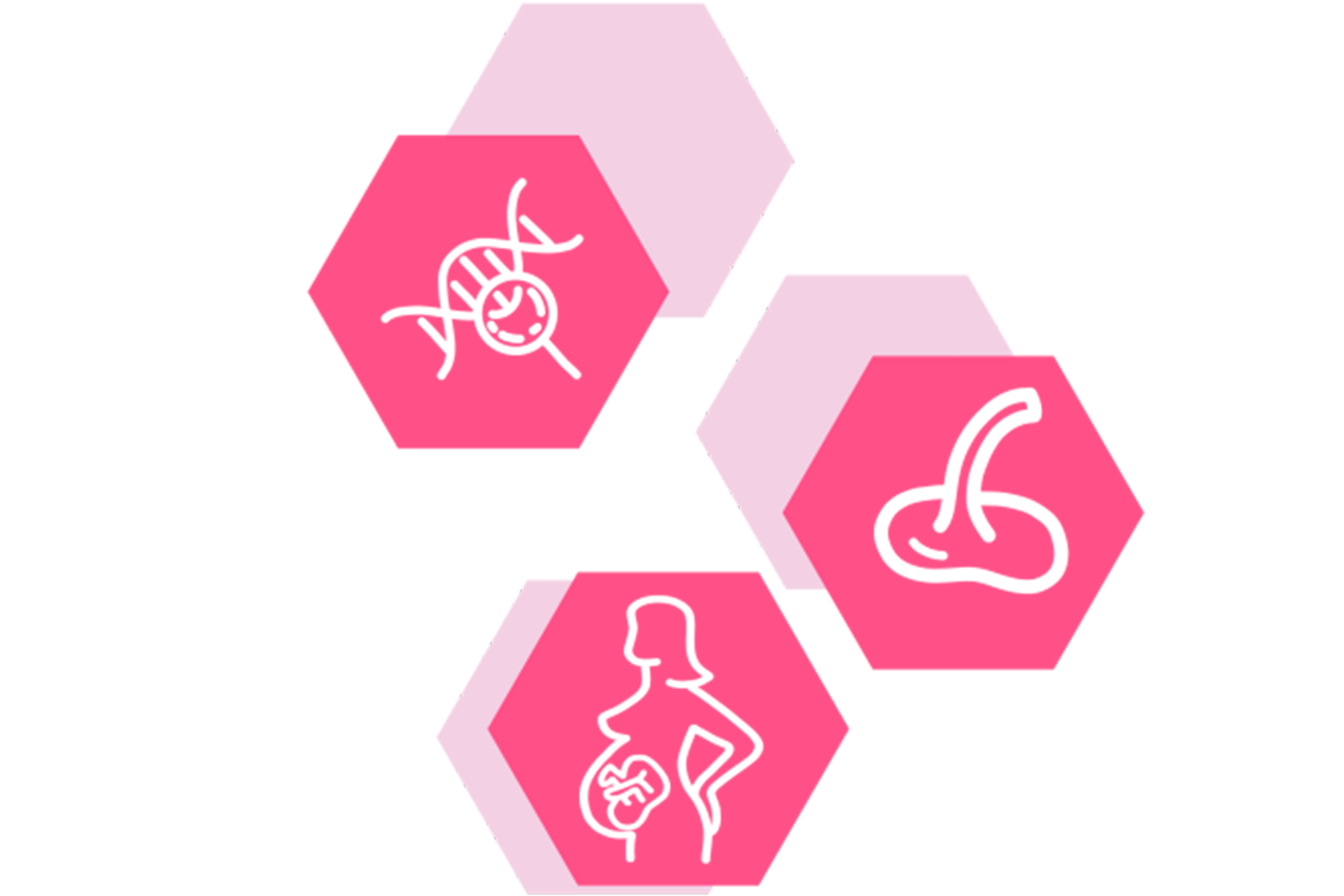
These findings suggest that when a birthing parent experiences economic hardship before and during pregnancy, it can shape inflammation and growth of the placenta, and may in turn shape the health of the pregnancy and the baby. The SPAH II study aims to investigate why individuals with more economic hardship may have these gene expression patterns.
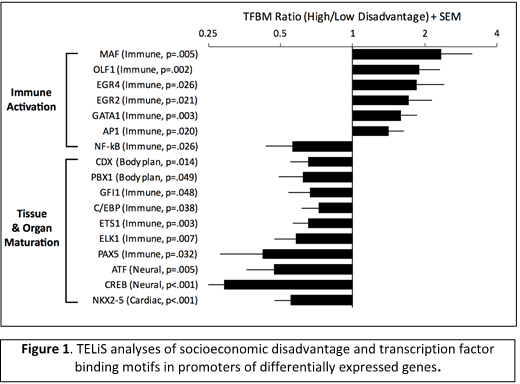
How do social relationships influence biology during pregnancy?
Social relationships shape our health throughout our lives. Relationships with romantic partners, close friends, and family members can provide support but can also be sources of stress in our lives. This support and stress influences the health of birthing parents’ bodies during pregnancy in different ways.
We found that individuals with more positive relationships during pregnancy had lower inflammation throughout their bodies, while individuals with more negative relationships during pregnancy had higher inflammation throughout their bodies. Higher inflammation in pregnant parents can lead to poorer health outcomes for themselves and baby. We aim to better understand why this occurs in the SPAH II study
